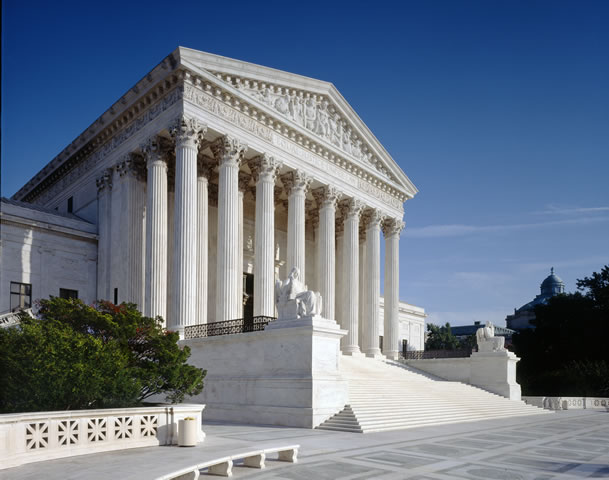Florida has asked the US Supreme Court to rule on its controversial social media law, in a move that thrusts America’s relationship with the First Amendment back into the spotlight.
Republican Florida governor Ron DeSantis in May 2021 signed a controversial state bill that targetted social networking firms, and how they moderate online content.
That Florida bill was the first time that a US state had enacted such legislation, and it effectively requires social networking firms such as Facebook and Twitter, to only suspend political candidates accounts for 14 days for content violations.
![]()
Florida law
It came after Twitter, Facebook and YouTube banned former President Donald Trump (who resides in Florida) for his role in inciting a mob of his supporters to storm the US Capitol building on Wednesday 6 January 2021, which resulted in the deaths of five people (including one police officer who was beaten to death).
The SB 7072 bill Ron DeSantis signed essentially prohibits tech platforms from suspending or banning political candidates in the state, with possible fines of $250,000 per day if the de-platformed candidate is seeking statewide office, and $25,000 per day if the candidate is running for a non-statewide office.
The legislation also gives Florida residents the ability to sue tech companies for de-platforming.
Almost immediately the tech industry fought back and a lawsuit was filed in June 2021 by several trade groups against SB 7072.
Both trade groups had called Florida’s law a “blatant attack” on the First Amendment rights of private businesses, and alleged the law was both unconstitutional and violated federal law.
Then earlier this year, a federal appeals court agreed that SB 7072 infringed on the First Amendment rights of private companies, and suspended it.
Supreme Court
Now this week, just after days after Florida governor Ron DeSantis was found to have gathered immigrants in Texas using questionable tactics, and then shipped them to Martha’s Vineyard – a move that some legal experts have alleged could be construed as ‘human trafficking’, the state of Florida has revealed it is seeking a ruling on SB 7072 from the US Supreme Court.
CNN reported that in a petition submitted to the Court on Wednesday, Florida’s attorney general argued the dominance of major social media platforms and their ability to promote the views of some users over others means it is critical for justices to weigh in on the issue.
“The question whether the First Amendment essentially disables the States – and presumably the federal government too – from meaningfully addressing those distortions should be answered by this Court, and it should be answered now,” the petition reportedly said.
According to CNN, mainstream legal experts have said if SB 7072 survives legal challenge, tech companies could be forced to host spam, hate speech and other legal-but-problematic material on their platforms. It could also rewrite decades of First Amendment precedent that’s prohibited governments from compelling private parties to host speech, they have said.
In a statement Wednesday, NetChoice – one of the challengers to the Florida law – said it welcomed Florida’s petition.
“We agree with Florida that the US Supreme Court should hear this case, and we’re confident that First Amendment rights will be upheld,” Carl Szabo, NetChoice’s VP and general counsel was quoted by CNN as saying. “We look forward to seeing Florida in court and having the lower court’s decision upheld. We have 200 years of precedent on our side.”
Texas law
It should be noted that Florida is not alone, as the Republican governor of Texas copied Florida’s move and and signed HB 20 into Texas law in September 2021.
In essence, the HB 20 law from Texas prohibits social media firms (defined as having 50 million active monthly users and that rely primarily on user-generated content) from banning, demonetising or otherwise restricting content (that ordinarily would be banned) based on “the viewpoint of the user or another person”, whether or not that viewpoint is expressed on the platform itself.
HB 20 also requires social media firms to disclose how they promote and moderate content and mandates transparency reports, similar to those already produced by Facebook, Google and others.
It gives Texas officials or local residents the ability to sue social media firm over their moderation decisions.
In May this year the Fifth Circuit Court of Appeals granted a request from Texas Attorney General Ken Paxton for a stay in NetChoice (a free speech champion for businesses) and CCIA (the Computer and Communications Industry Association) versus Texas AG Paxton.
The case then headed to the US Supreme Court for its decision, which temporarily blocked the Texas law from taking effect while the litigation continued.
But last week the Fifth Circuit Court of Appeals decided to uphold the Texas law, which contrasts with the ruling from the Eleventh Circuit earlier this year that held Florida’s law to be unconstitutional.
This circuit court split makes it more likely that the Supreme Court will have to intervene.




